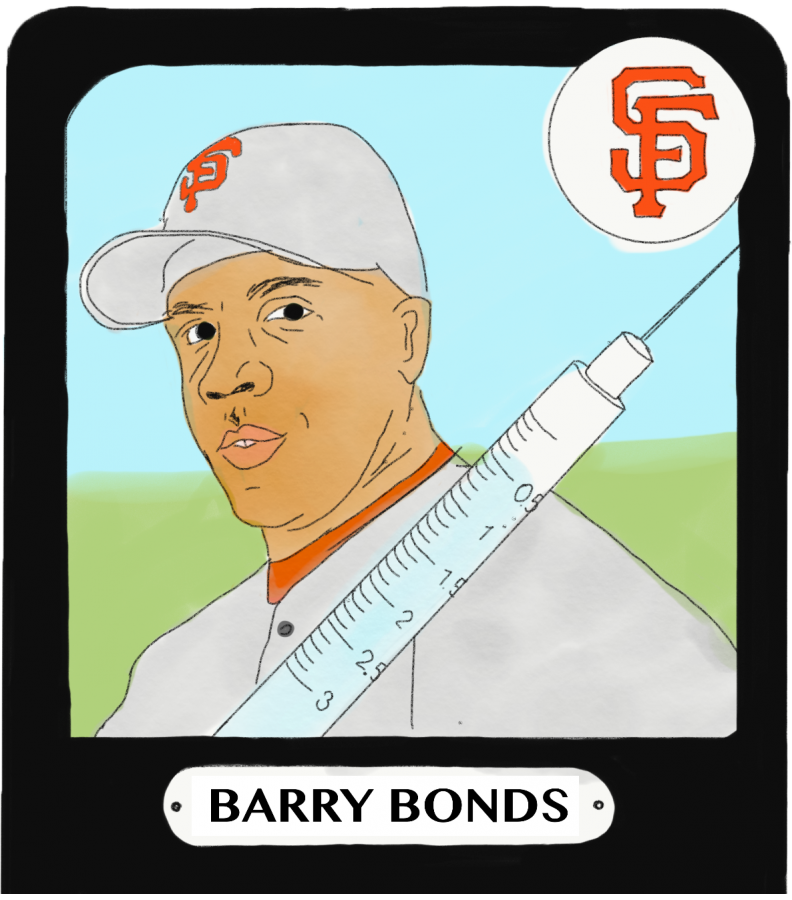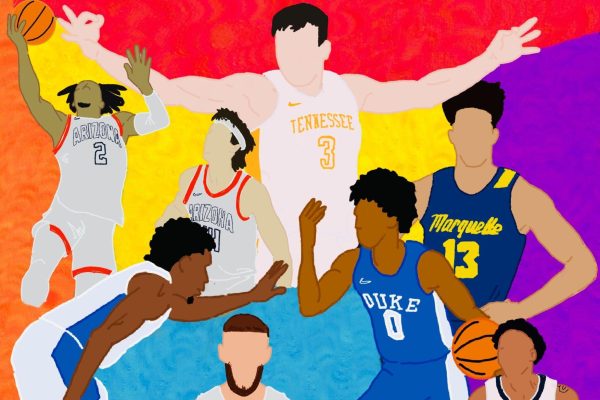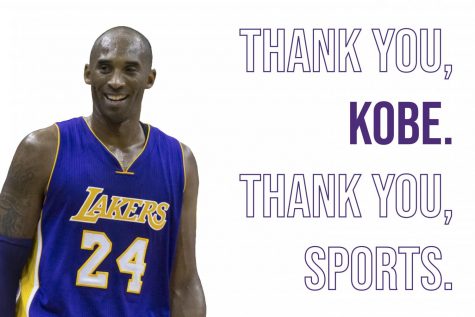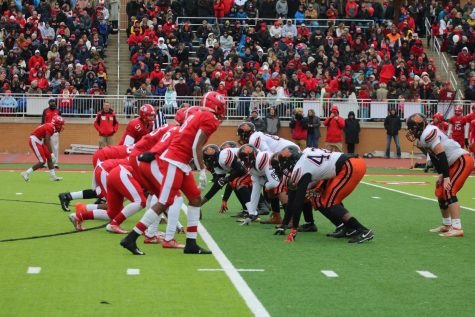Bonds of cheating
For former Major League Baseball (MLB) stars such as Barry Bonds, Roger Clemens and Mark McGwire, January is a time for waiting. Continually standing by for the ultimate recognition they believe they deserve. But for the past six years, when the Baseball Writers’ Association of America (BBWAA) voted on Hall of Fame electees, many have glanced at names such as “Bonds” and “Clemens” on their ballots without any second thoughts. Looking at their astounding achievements, an uninformed fan may be puzzled as to why these legends weren’t elected first-ballot. However, evidence of cheating in an era dominated by performance enhancing drugs diluted the legitimacy of their incredible careers.
All-time greats, Chipper Jones, Vladimir Guerrero, Jim Thome and Trevor Hoffman were inducted into the Baseball Hall of Fame July 29, 2018. Each of them received more than the needed 75 percent of the vote from 422 ballots cast. When the vote took place in January 2018, Roger Clemens (57.3 percent of votes) and Barry Bonds (56.4 percent of votes) both missed out on the Hall of Fame election for the sixth time. While that percentage has risen every year since they first appeared on the ballot, the use of various performance-enhancing drugs has caused many baseball writers of the BBWAA to refrain from voting for them despite their record breaking statistics.
In this situation, the phrase “numbers never lie” is critical in analyzing the Hall of Fame argument for these players. Bonds broke the single season home run record in 2001 with 73 and hit the most home runs in MLB history with a whopping 762. Not to mention he took home a record seven MVP awards along with 14 all-star selections. Before he was named in the Bay Area Laboratory Co-operative (BALCO) scandal of 2003, which exposed illegal steroid usage of several athletes, Bonds’ talent was not questioned whatsoever. There was no denying that Barry Bonds was one of the greatest players of all time.
Former Cardinals slugger Mark McGwire is another name whose legendary career was damaged by the use of illegal substances, specifically Androstenedione, which increases testosterone production in the body. Although it had not been restricted by the MLB at that time, the drug had been banned by the National Football League (NFL) and International Olympic Committee (IOC). “Big Mac” broke the single season home run record with 70, three years before Bonds broke it again with 73. In 2010, he came clean and admitted to the use of performance enhancing drugs. Although he personally apologized to former Cardinals manager Tony La Russa and former MLB commissioner Bud Selig, according to McGwire, he only took steroids for health purposes. He believes he was given a gift to hit home runs. Whether or not this is true is up for interpretation, but no one is going to go and hit 583 home runs over a 16-year career without a lot of hard work and dedication.
It was not a select group of sluggers who were using performance enhancing drugs. The usage was fairly common across the league, as seen in information from the Mitchell Report conducted by former U.S. senator George J. Mitchell, which listed dozens of alleged steroid users. Bonds, McGwire and Clemens were accused and heavily criticized, but a number of other skilled players may have escaped from public scrutiny. In an interview with MLB, Bonds describes his feelings toward the situation.
“There are a lot of perceptions in this world,” Bonds said. “Some people aren’t getting punished for it, so why should others? You shouldn’t be punished on perceptions.”
Despite their use of performance enhancing drugs during their careers, these players worked extremely hard for their accomplishments and undoubtedly deserve to be in the Hall of Fame. Their legitimacy can be questioned, but there is no denying their immense success and the way they captivated baseball with their incredible skills.
Your donation will support the student journalists of Kirkwood High School. Your contribution will allow us to purchase equipment and cover our annual website hosting costs.

Interests: Tennis, baseball, reminiscing on the glory days of YouTube, posing as a food critic and knowing a ridiculous amount of information about Harry...

Interests: Running, drawing, governing + watching parks and rec.
Favorite musical artist: Cage The Elephant.
Favorite quote: "I couldn’t think...
















